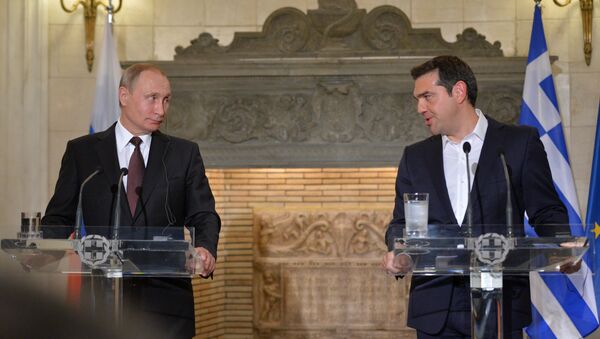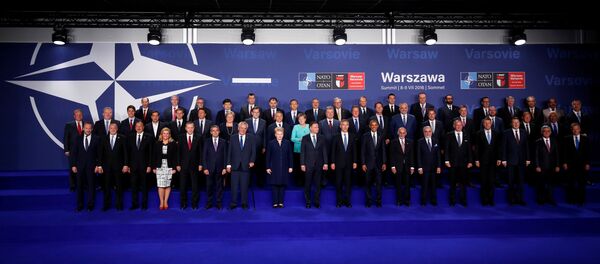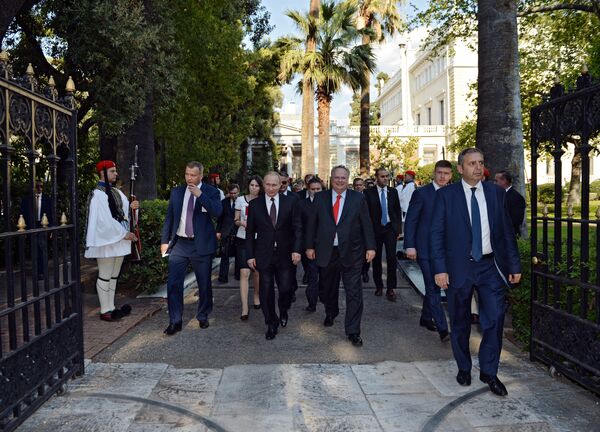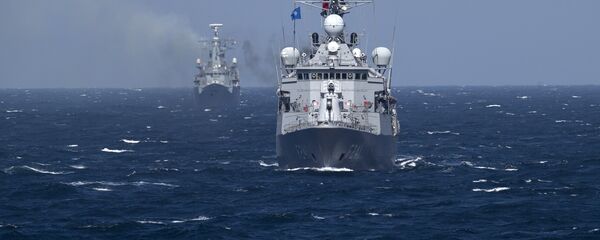A joint project aimed at producing Kalashnikov rifles in Greece seems to be of particular concern to NATO. The initiative, according to Greek Defense Minister Panos Kammenos, could get the green light as soon as anti-Russian sanctions are lifted.
"The fact that a strategically important NATO country like Greece is trying to build its own relationship with Moscow could seriously undermine the alliance's ability to present a united front to deter further acts of Russian aggression," an unnamed NATO official told the Telegraph.
NATO blames Moscow for meddling in Ukraine and Crimea's decision to reunite with Russia. For its part, Moscow has been committed to resolving the civil war in the neighboring nation, although it is not a party to the conflict.
However, Greece is not just any NATO member when it comes to Russia. Earlier this week, State Duma Chairman Sergei Naryshkin called Athens "Russia's oldest friend" and rightly so. Relations between the two countries date back a millennium.
"Our cooperation rests on a rock-solid base of common civilizational values, the Orthodox culture and a genuine mutual affection," President Vladimir Putin noted ahead of his visit to Greece in May.
Still Russia's emerging love affair with Greece, built on centuries of historical ties, could well be viewed as a "poke in the eye of NATO," Mark B. Baldwin, who has a master's degree in Russian language and literature, wrote for CounterPunch. But if NATO's leadership wants to blame someone for these developments, it should apparently look in the mirror.
"Having expanded the number of member countries to encircle Russia since the collapse of the Warsaw Pact, NATO has been working overtime to reignite old Cold War tensions by complaining of Russian aggression and demonizing Putin," he narrated.
Yet it is the activities of the North Atlantic Alliance that have "created a refugee crisis causing millions to flee for their lives," the analyst added. "The war on Libya has benefited the oil interests of powerful NATO countries, but left a disproportionate burden on the shoulders of Greece who is left to rescue thousands of desperate Libyans from the sea every week."
Austerity measures, imposed by the Troika of international creditors and the toll they have taken on the fragile Greek economy have also been a factor.
As a result, Greece and several other countries, notably Italy, have pushed for a greater dialogue on anti-Russian sanctions among European Union members, questioning the viability of the restrictive measures that have adversely affected bilateral cooperation.
On Saturday, Greek Prime Minister Alexis Tsipras urged NATO leaders to engage in "constructive talks" with Russia. He has long advocated for a dialogue with Moscow, calling Cold War-style rhetoric and sanctions not productive.




